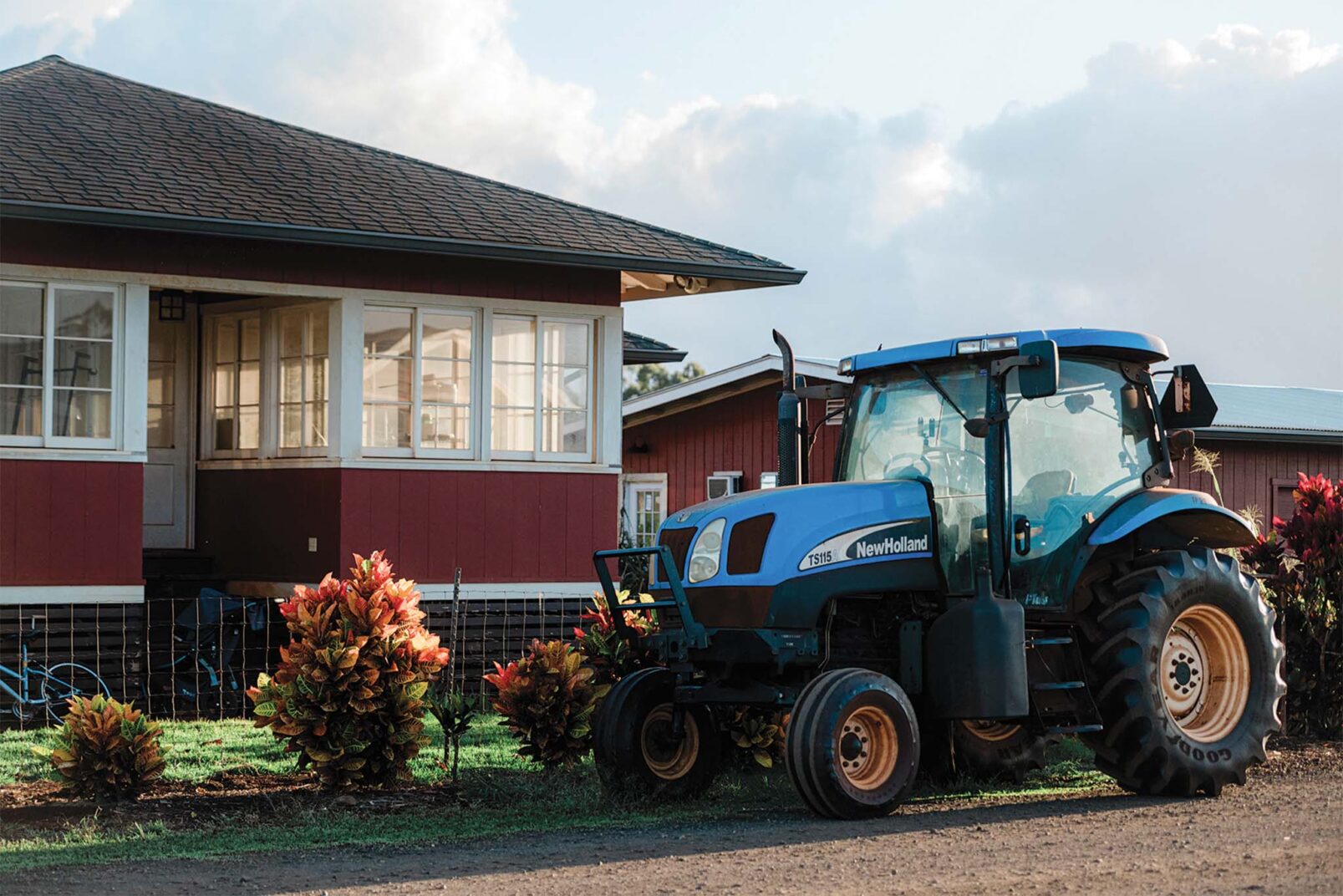On a sunny morning at Sweet Land Farm, a group of 15 are gathered outside of a four-car garage that has been converted into a farm shop and cheese-making room. They are surrounded by rolling green pastures, blue skies, and red barns that house the farm’s roughly 300 goats.
After a primer on goat dairy operations from Emma Bello, the 34-year-old owner of the farm, guests meander from barn to barn, feeding, petting, and learning to milk the goats. The animals are playful, snuggling up when guests reach out their hands. “They’re a lot like dogs,” Bello says. “They make you laugh. They make you mad. At the end of the day, they’re very lovable.”
At the local industry’s peak in 1955, when it was valued at more than $33 million, there were over 80 dairies on O‘ahu. That number declined dramatically as lower-cost imports priced out local farms. Hawai‘i now imports 80 to 90 percent of its food—a major cause for concern for food security in the islands. According to David Lopez, executive officer at the Hawai‘i Emergency Management Agency, if there is a natural disaster and cargo ships can’t reach O‘ahu, there is only enough food on the island to support the resident and visitor population for about four days.
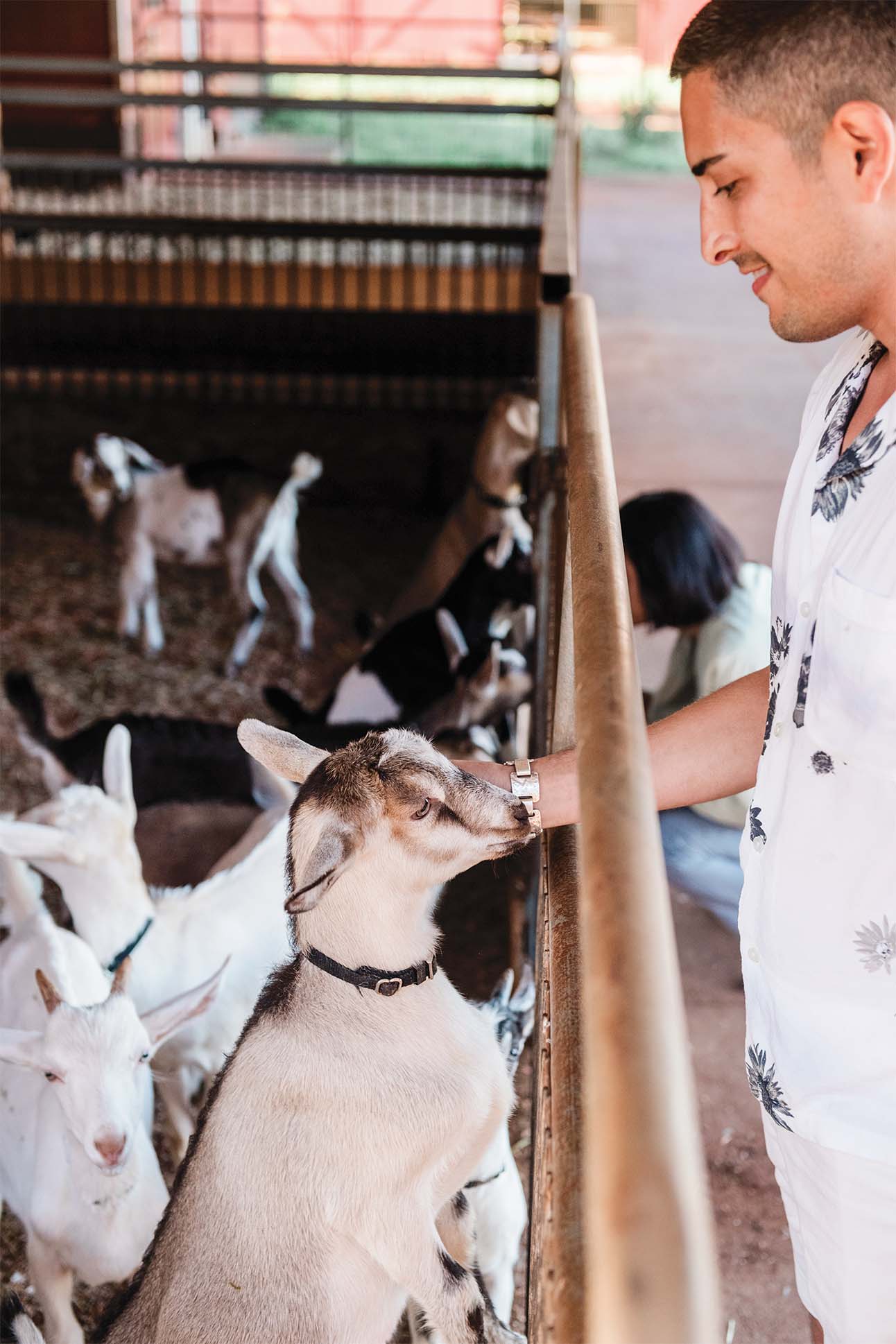
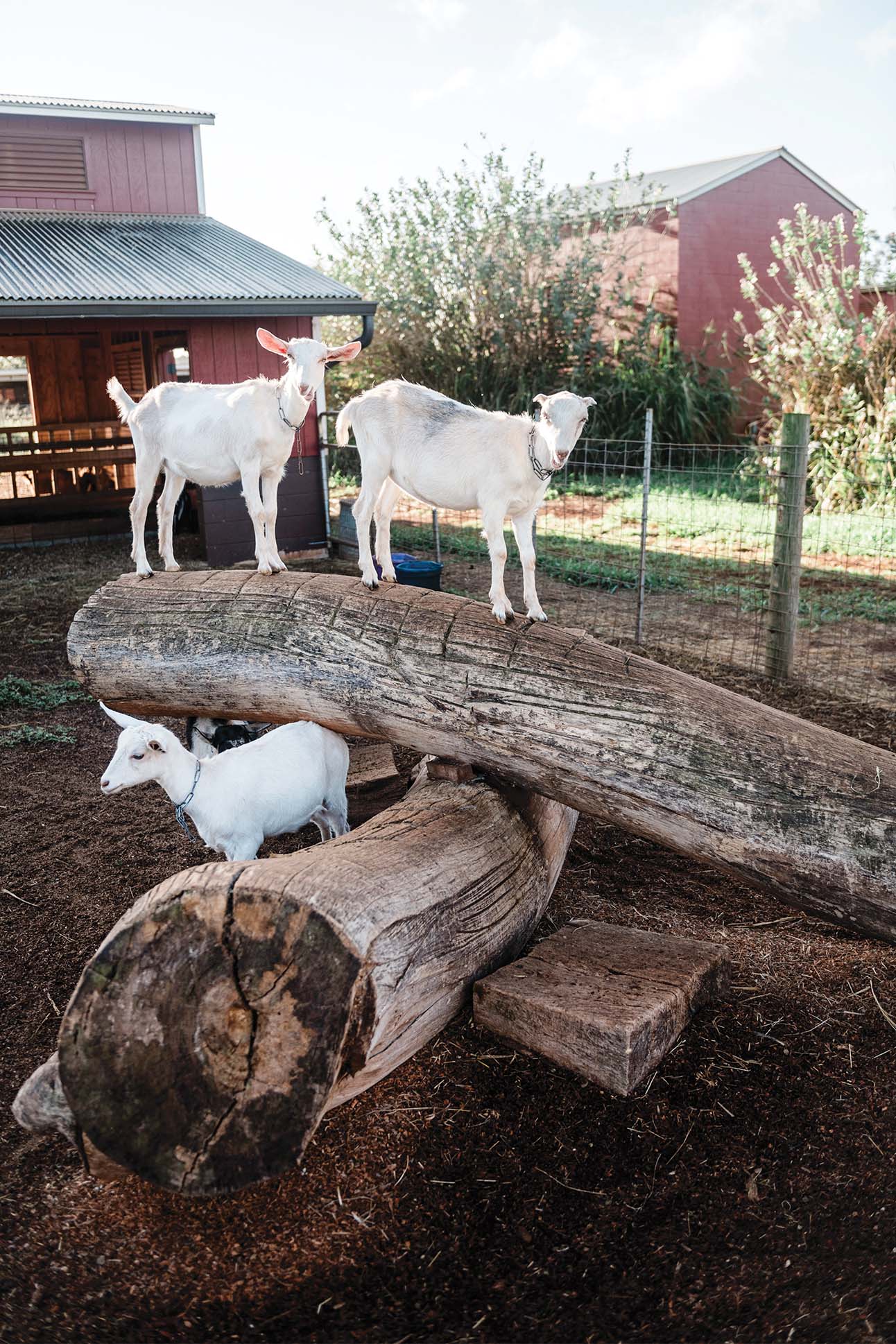
To address this alarming dependence on imported food, the state government created a plan in 2005 to double local food production by 2030. As the only option for milk and cheese produced commercially on O‘ahu, Sweet Land Farm is not just an attraction for visitors, schools, and families, it represents a crucial step forward in meeting Hawai‘i’s sustainability goals. “Because we are the only dairy on O‘ahu, it’s essential, you know?” Bello says. “We need this farm going for the community.”
Originally a culinary student, Bello intended to pursue a career as a pastry chef. But as the daughter of two poultry farmers, she was also curious about farming. After interning at Alan Wong’s in Honolulu, Bello took on a summer internship at Surfing Goat Dairy on Maui. She was bottle-feeding a baby goat one day, laughing at how he was grunting and sticking his tongue out, when she knew she was meant for goat farming. “I stayed there for a whole year instead of just the summer,” Bello says. Before she left Maui, her family purchased 86 acres outside of Wahiawā, where Bello grew up and where her family has lived since the 1800s. While they prepped the land, Bello continued her training on a goat farm in California, returning to open Sweet Land Farm in 2010.
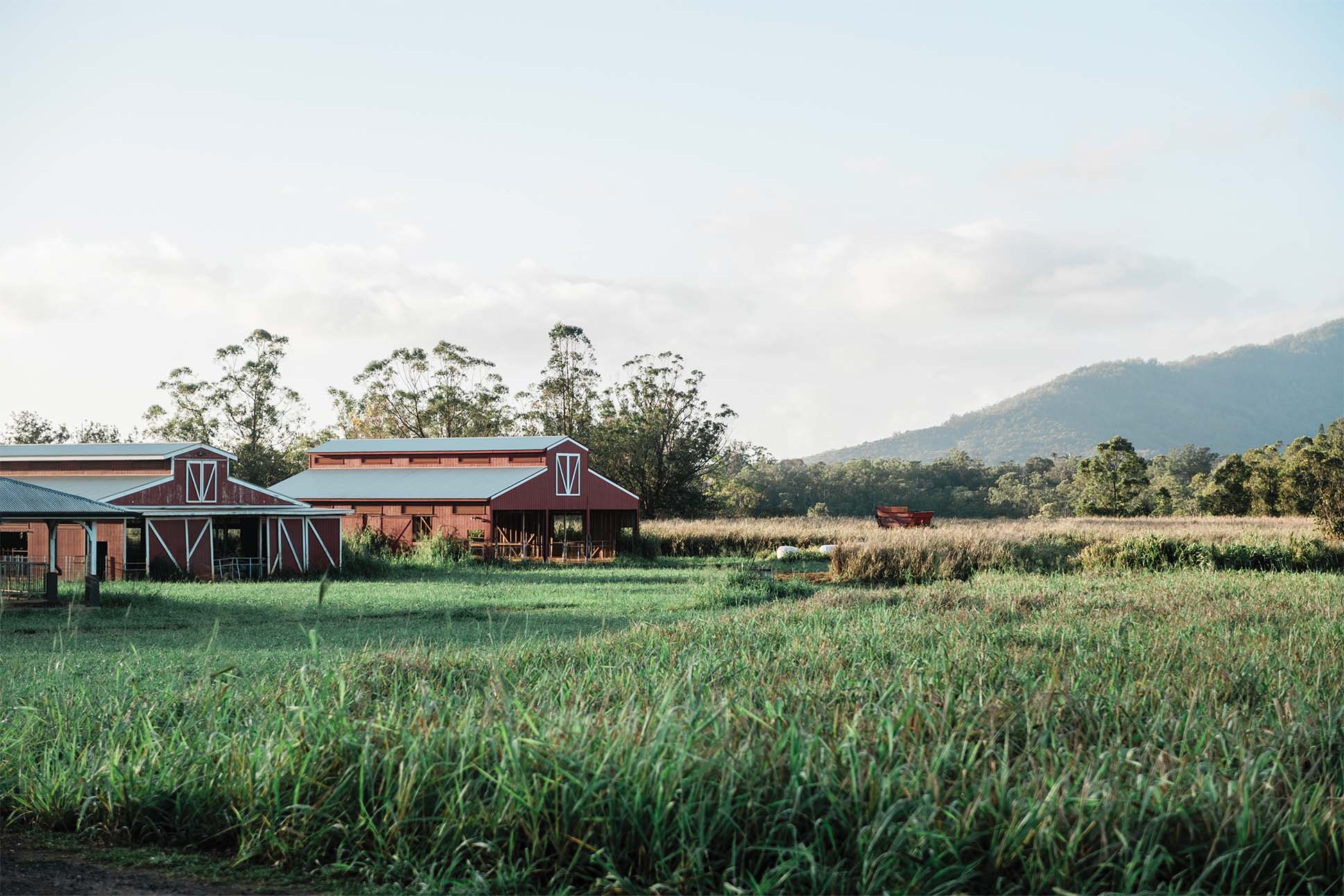
I was once asked many years ago, ‘Why do you do what you do?’ I responded, ‘I feed people.’ We are one more farm striving to do just that.
Emma Bello, farmer
Today the farm makes four varieties of goat cheese—soft and spreadable chevre; salty, crumbly feta; gouda, ready to be sliced and melted; and tomme, a hard cheese similar to parmesan—in addition to soaps, lotions, and desserts, all made from scratch with goat milk produced on site. After the tour, the day’s visitors pile into the farm shop and emerge with treats to enjoy outside on picnic tables at the center of the farm. Among them are a mix of families, chefs, bloggers, and foodies, but the farm is a draw to anyone who loves food and cares about where it comes from.
Customers help dictate the farm shop’s growing offerings, which can also be found at Whole Foods, Foodland Farms, and select boutique wine shops on the island. To serve its expanding fan base, the company will begin taking online orders and shipping country wide beginning in spring 2024. Also this year, Sweet Land Farm will start selling bottled goat milk, a product in high demand among guests to the farm.
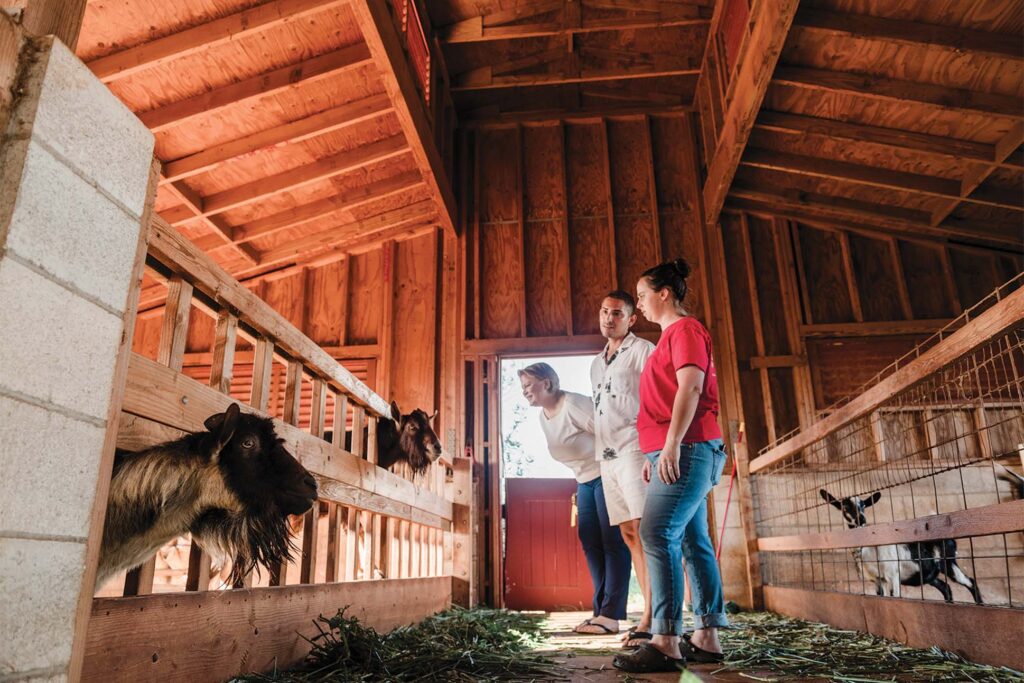
Bello doesn’t just raise goats—she helps them give birth, talks to them, makes them feel safe. “They think of me as their mommy,” she says. And Bello is just as dedicated to educating the community and being part of a more resilient local food system as she is to her beloved goats. “I was once asked many years ago, ‘Why do you do what you do?’” Bello says. “I responded, ‘I feed people.’ We are one more farm striving to do just that.”

